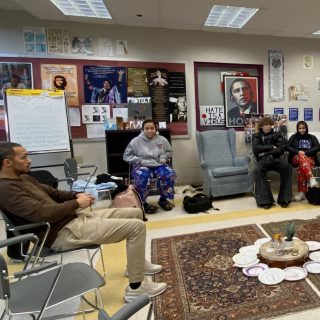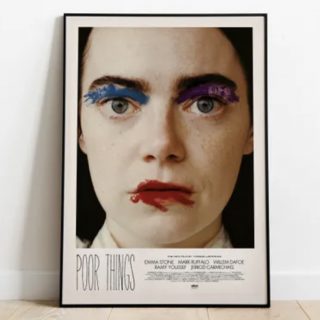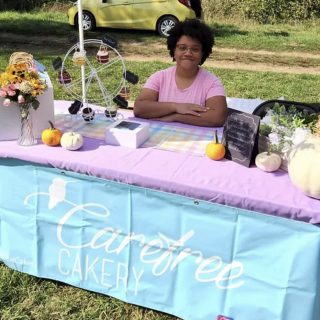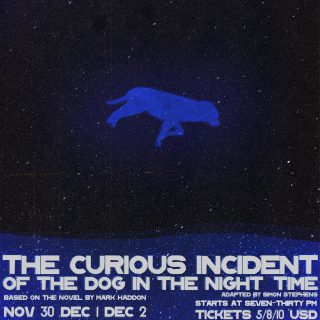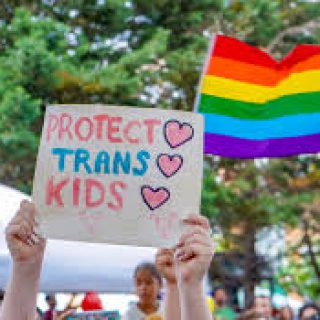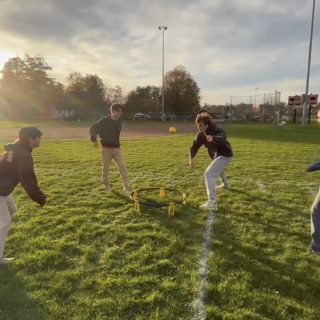‘Loveless’ book a positive, much-needed representation of aroace identity

“‘I’ve never had a crush on anyone in my entire life,’ I said. It was all sinking in. I’d never had a crush on anyone. No boys, no girls, not a single person I had ever met. What did that mean? Did it mean anything? Or was I just doing life wrong? Was there something wrong with me?”
This scene and its questioning appear in Alice Oseman’s popular book Loveless, in which the main character, Georgia Warr, goes on a journey in college to make friends and to discover and understand her sexuality. Ultimately, she realizes she is aromantic and asexual.
There was nothing wrong with Georgia Warr, it turns out; she just didn’t know what was possible.
Surrounded by books, music, and television centered around relationships, Georgia never doubts she will have her own romance one day. Alongside her friends, Pip and Jason, and her roommate Rooney, she is determined to find someone as she starts college. However, she soon realizes that it’s not as easy for her as it seems to be for everyone else.
Georgia experiences little or no romantic attraction to anyone (aromantic) and little or no sexual attraction to anyone (asexual). Throughout the book, we see her confusion and doubt as she struggles to accept that she may never have the kind of love she dreamed she needed to be happy.
Oseman (who uses she/they pronouns) is an award-winning author, illustrator and screenwriter of the graphic novels and television adaptation of Heartstopper, as well as several YA novels. Her books often explore difficult but important topics including homophobia, depression, bullying, abuse, and eating disorders. Although some themes can be dark, Oseman is also known for the queer joy in their books.
Aroace (aromantic and asexual) herself, Oseman understands the importance of representation, especially for such an underrepresented and hidden identity. In an interview, she said that “under-representation leaves many aro/ace people not even aware that they could be aro/ace, which can make people feel like there’s something ‘wrong’ with them, or even leave people stuck in relationships in which they don’t feel comfortable.”
Loveless also portrays how amatonormativity (the assumption that all human beings pursue love or romance, especially by means of a monogamous long-term relationship) affects everyone, not only those on the spectrums of aromanticism and asexuality.
“As I developed Georgia’s story, I couldn’t help but think about how the forces affecting her—society’s dictation that romantic love is superior to everything—were also affecting Rooney, who opts for one-night-stands only, and Pip, who is unsure whether she’ll ever find the one, and Jason, who was stuck in an emotionally abusive relationship in his teenage years,” she said in an interview with We Need Diverse Books, published on diversebooks.org. “They were all, I realized, dealing with the feeling of being ‘loveless’ in some shape or form, and from there, I knew what book I wanted to write.”
Under-representation leaves many aro/ace people not even aware that they could be aro/ace, which can make people feel like there’s something ‘wrong’ with them, or even leave people stuck in relationships in which they don’t feel comfortable.
ALICE OSEMAN, in an interview with The Queerness
Similar to Georgia, it was hard for me to come to terms with the fact that I might never be in a relationship. Loveless was so impactful for me because it showed true friendship and happiness for someone who is aroace. This book displays the love of friends, and how their friendships can be just as fulfilling as romantic relationships.
When talking about her experience with friendships and relationships, Georgia said that “friends are automatically classed as ‘less important’ than romantic partners. I’d never questioned that. It was just the way the world was. I guess I’d always felt that friendship just couldn’t compete with what a partner offered, and that I’d never really experience real love until I found romance. But if that had been true, I probably wouldn’t have felt like this.”
This absolutely reinforces my experience and my belief that friendships can be just as important as romantic relationships.
While Loveless is a captivating and enjoyable book, it is also very educational for those who don’t know much about asexuality and aromanticism. Books and media like this can help bring understanding and acceptance to this identity, both within and outside of queer spaces.

